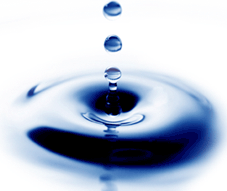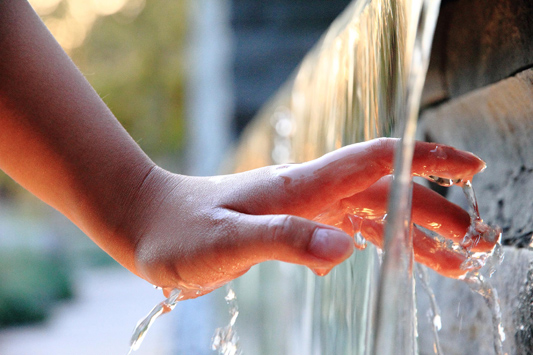Water, Water, Everywhere?
Investigating and Protecting Our Life Source
PsTL 1906W – a writing intensive freshman seminar on water |
University of Minnesota-Twin Cities Campus
Each student in this freshman seminar creates a digital story on a water resource issue of their choosing. The digital story assignment incorporates research, an interview with a relevant person from the community, university, or business, and some combination of video clips, music, voiceovers, and photographs. Along with choosing the topic, the seminar student writes the story text, selects the music and the specialist they want to interview, as well as chooses the media elements they want to use. It is harder than it may appear to research, edit, and produce what is essentially a short film in one semester.
Two objectives shaped my course design: 1) featuring students’ voices, and 2) helping students connect their experiences with water to their intellectual knowledge. In the fifteen years I have been teaching in the humanities, I’ve discovered that students are more engaged and invested when they can connect their interests to what we are learning. Water seminar students enroll from across the university—from business to environmental science. Students take the water seminar for reasons as varied as the class fits their schedule and they need a writing intensive course that fulfills an environmental theme, to being intrigued by the topic, or because they want the opportunity to make a digital story. Most start the semester knowing little about water, and emerge with an introductory framework for an integrated awareness about issues relevant to water resources. We move from local issues involving the Mississippi River, which flows outside our classroom, to global topics addressing water scarcity and the impact that privatization of freshwater sources has on people and ecosystems.
A kind of paradigm shift occurs for most of the students during the seminar; they go from not thinking much about water, to an awareness of our dependence on this resource that we know surprisingly little about. This shift includes the realization that they are alive, thanks to water, and after learning about water-scarce countries including India and Africa, they understand that fresh water is a gift. The seminar provides them with an academic setting where they become aware that access to water, as well as to technology and electricity, comes with responsibilities. We work through questions such as, Why is it that most countries have not determined that access to fresh water is a human right? Why can companies own land that contains fresh water sources, while people throughout the world are dying due to the lack of water? What are the systematic forces that are in place, both in our country and globally, which hastens the rate at which climate change is occurring, and how does this relate to fresh water? What can we do as individuals, and as a class?
My goal is to help students understand the societal and institutional assumptions that shape our attitudes toward water. I don’t need to bring up personal use issues, because students’ natural tendency is to move between these complex questions and the more specific, relevant question: What’s in this plastic bottle in my hand, and how does it relate to what we’re studying? The phenomenon of bottled water fascinates them. I am old enough to remember Life Before Bottled Water. Water in plastic bottles is something these young students have grown up with, but now that they have entered the discourse on water resource use, they see the bottle in a different light. The shift they are experiencing in class is being reflected by the cultural and global shifts that are occurring, as evidenced by the recent edition of National Geographic devoted to water, and other relevant articles and documentaries in the media.
Introducing students to the complex water-related problems is only part of the seminar’s objectives. Through guest speakers, selected readings, public events, and documentaries, the water seminar students are also learning about the many innovative solutions that citizens, organizations, businesses, governmental agencies, and educational institutions have accomplished or are attempting to implement. My goal is for students to emerge from the seminar with multiple models of what people are doing to address the water-related challenges that are at the heart of many local, regional, and global conflicts.
The most powerful component involved in students’ understanding occurs when they create their own digital stories. In choosing, researching, writing, and producing the stories, students become participants in the intellectual, applied discourse relevant to water use. The digital stories reveal to us what seminar students have learned, and this very act of educating others through their academic work becomes in itself a catalyst of change.
Students’ memories and experiences with water are a bridge to the larger issues related to water. We are, after all, composed mostly of water, and kind responds to kind. On some visceral, perhaps cellular level, we respond to water because it sustains us and keeps us alive.
When seminar students listen to my colleague, Dr. Jay Hatch, describe the intricate balance involved in nurturing the life cycle of a Sturgeon, or a rainforest ecosystem, or when they view photographs of water created by visual artist Celeste Nelms, they are learning how others are using their intellect and passion for this natural resource we are dependent on. My hope is that students emerge from the seminar with tools for creating positive social change, and with the awareness that water connects them to all living beings.
Students in the seminar were asked to submit a photograph they took that related to their digital story topic. The slideshow above provides you with snapshots of what you will view in their digital stories.

